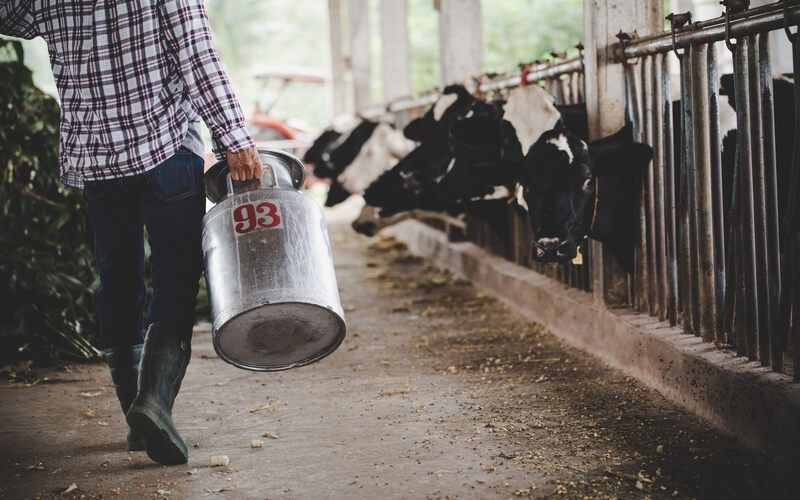How milk is getting caught in the middle of Trump’s policy agenda
Sourse: en.edairynews.com
While Trump's policies haven't specifically targeted the milk industry, dairy farmers are experiencing the effects of tariffs, immigration policies, and trade tensions.

None of Trump’s policies have specifically targeted the milk industry, but dairy farmers show how tariffs, immigration and more have overlapped in one sector. President Donald Trump’s moves in Washington are being felt in the milking barns of an upstate New York dairy farm.
AJ Wormuth has already seen costs rise from Trump's tariffs, while the threat of a wider trade war is causing the price for his cows’ milk to drop. “We’re getting a double whammy — we’re getting lower prices and higher costs,” said Wormuth, who owns 3,600 dairy cattle at Half Full Diary.
Dairy farmers, while not directly targeted, are caught up in the rapid changes across the federal government amid Trump’s second term. Tariffs increase costs for farmers while reducing U.S. dairy exports. Immigration policies could affect the industry’s workforce, with immigrants making up half of dairy workers. Concerns are also growing about the spread of bird flu, which has been impacting dairy cattle. Trade wars further exacerbate issues in the sector. New tariffs on Chinese imports and threats of tariffs on Mexican and Canadian goods impact farmers, potentially leading to an oversupply of milk in the U.S. This imbalance could decrease the price farmers receive for milk, though consumer prices might not reflect these changes. Jaime Castaneda of the National Milk Producers Federation noted, “Anything that is disrupting the flow of trade is obviously concerning.”
Additionally, federal funding cuts and freezes have affected farmers' abilities to market their products and implement conservation projects. Immigrant labor, crucial to the dairy sector, faces challenges due to administrative immigration stances. Without proper visas, workers are at risk of deportation, which could severely affect the industry. The uncertainty isn’t limited to trade and policy; the spread of avian flu among cattle is another pressing concern.
Though the Trump administration has yet to make substantial changes to address the bird flu, recommendations include the development of a vaccine to manage the risk effectively. Castaneda of the National Milk Producers Federation emphasized the importance of having a vaccine available as a precaution against future outbreaks.
AJ Wormuth has already seen costs rise from Trump's tariffs, while the threat of a wider trade war is causing the price for his cows’ milk to drop. “We’re getting a double whammy — we’re getting lower prices and higher costs,” said Wormuth, who owns 3,600 dairy cattle at Half Full Diary.
Dairy farmers, while not directly targeted, are caught up in the rapid changes across the federal government amid Trump’s second term. Tariffs increase costs for farmers while reducing U.S. dairy exports. Immigration policies could affect the industry’s workforce, with immigrants making up half of dairy workers. Concerns are also growing about the spread of bird flu, which has been impacting dairy cattle. Trade wars further exacerbate issues in the sector. New tariffs on Chinese imports and threats of tariffs on Mexican and Canadian goods impact farmers, potentially leading to an oversupply of milk in the U.S. This imbalance could decrease the price farmers receive for milk, though consumer prices might not reflect these changes. Jaime Castaneda of the National Milk Producers Federation noted, “Anything that is disrupting the flow of trade is obviously concerning.”
Additionally, federal funding cuts and freezes have affected farmers' abilities to market their products and implement conservation projects. Immigrant labor, crucial to the dairy sector, faces challenges due to administrative immigration stances. Without proper visas, workers are at risk of deportation, which could severely affect the industry. The uncertainty isn’t limited to trade and policy; the spread of avian flu among cattle is another pressing concern.
Though the Trump administration has yet to make substantial changes to address the bird flu, recommendations include the development of a vaccine to manage the risk effectively. Castaneda of the National Milk Producers Federation emphasized the importance of having a vaccine available as a precaution against future outbreaks.
Key News of the Week









